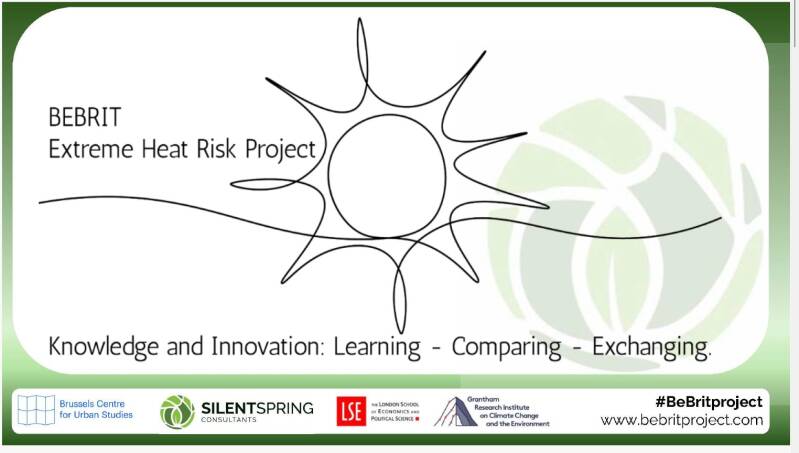On September 26, 2024, the Royal Library of Brussels played host to BeBrit 2024, a vital event focused on addressing the growing threat of extreme heat in urban areas. Organized by Silent Spring Consultants and funded by the Brussels Centre of Urban Studies (BCUS), the event brought together experts, researchers, and professionals to discuss how cities can better prepare for and respond to rising temperatures.

With climate change intensifying the frequency and severity of heatwaves, the BeBrit Extreme Heat Project aims to understand how urban areas can adapt and create more resilient environments. The event's discussions centered around practical solutions, collaborative exercises, and global lessons learned in dealing with extreme heat.
The day began with an introduction to the BeBrit Extreme Heat Project by Dr. Andrea Armstrong, the project leader. She set the stage by outlining the project's objectives: to explore urban heat preparedness in Belgium and the UK, while comparing how each country handles extreme heat events. Dr. Armstrong emphasized the growing urgency of the issue, highlighting the potentially devastating effects of heatwaves on public health, infrastructure, and urban economies.
Following this, Dr. Armstrong was joined by Dr. Candice Howarth, a project partner from the UK, for a comparative analysis of heatwave preparedness in Belgium and the UK. The two nations, while facing similar challenges, have adopted different approaches to preparing for extreme heat. The discussion shed light on the strengths and weaknesses of each approach, offering valuable takeaways for both countries.
One of the highlights of the event was a session focused on improving responses to extreme heat, which included input from Izabel Oliveira, a professional intern with the project, and Grace Wickerson from the Federation of American Scientists. The session examined global best practices for extreme heat management and explored how lessons from other countries could be applied to the Belgian and UK contexts.
Attendees also had the chance to participate in an interactive, hands-on exercise titled "Are we prepared for 50 degrees?" This collaborative session, facilitated by Dr. Armstrong, Dr. Howarth, and Dr. Andrew Kythreotis, another UK project partner, allowed participants to simulate real-world scenarios in which temperatures reached an unprecedented 50 degrees Celsius. The exercise fostered lively discussions and encouraged knowledge-sharing across disciplines, pushing participants to think creatively about how to strengthen heatwave preparedness.
The day continued with a lunch and poster exhibition, featuring work from the Belgian Project Team and international collaborators. Attendees had the chance to network, exchange ideas, and view cutting-edge research on extreme heat resilience.
In the afternoon, the conversation shifted to influencing change. Participants explored how to turn ideas into actionable strategies, discussing the political, social, and economic levers needed to push for real reform in heatwave preparedness.
The event concluded with closing remarks from Wim Pulinx, the Belgian Project Partner, and Dr. Andrea Armstrong. Both emphasized the importance of ongoing collaboration and the need for continued efforts to ensure cities are equipped to handle the growing threat of extreme heat.
BeBrit 2024 wasn’t just about discussing the challenges we face but also about creating practical, collaborative solutions. With a diverse group of experts and stakeholders contributing to the conversation, the event served as a crucial step toward building urban environments that can withstand extreme heat and keep communities safe.
For those who attended, a contact list has been made available to facilitate continued collaboration, ensuring the momentum from BeBrit 2024 carries forward into meaningful action.
Add comment
Comments